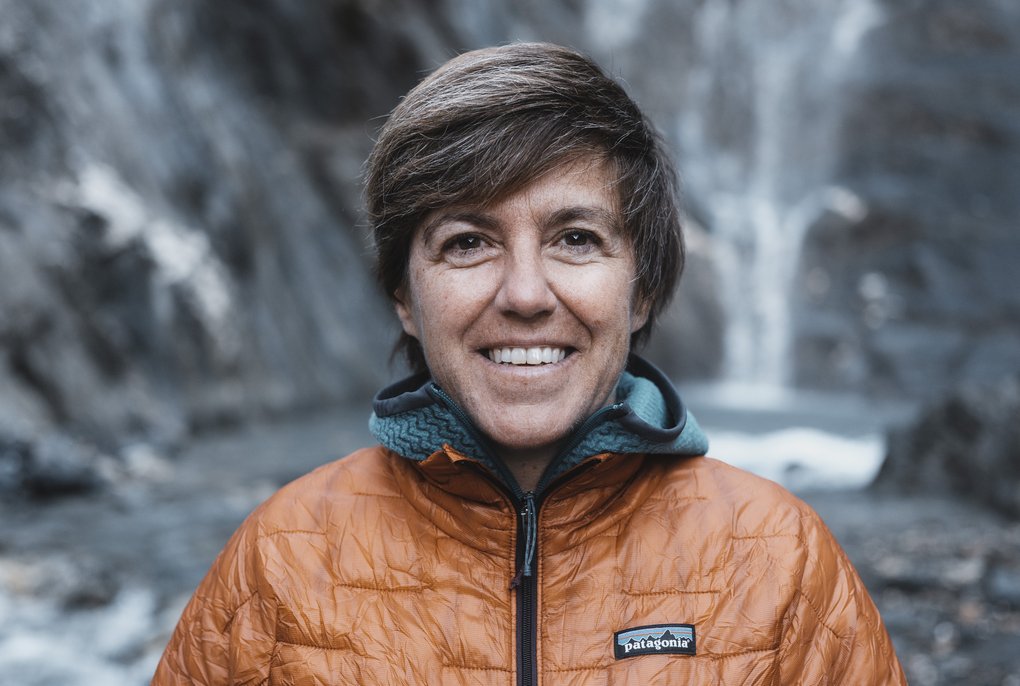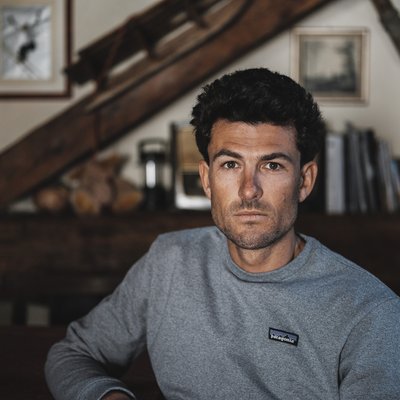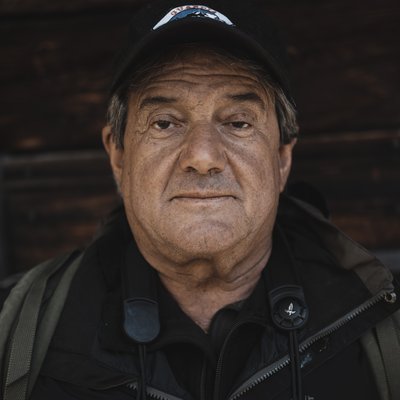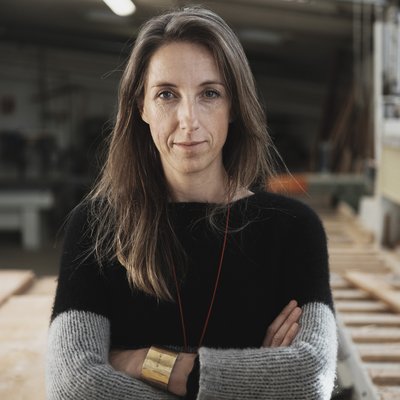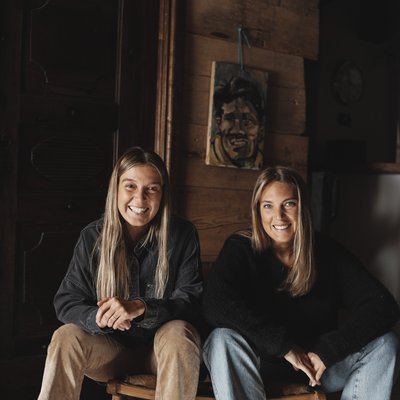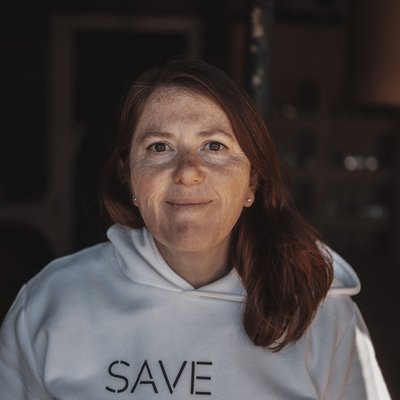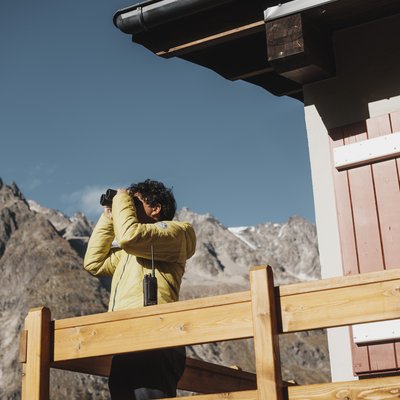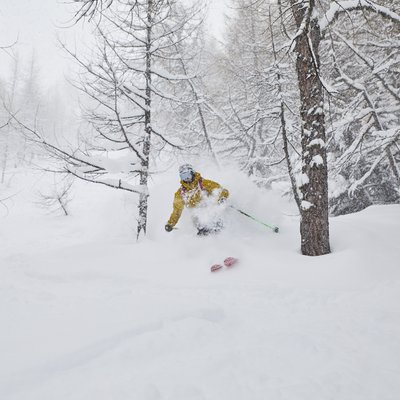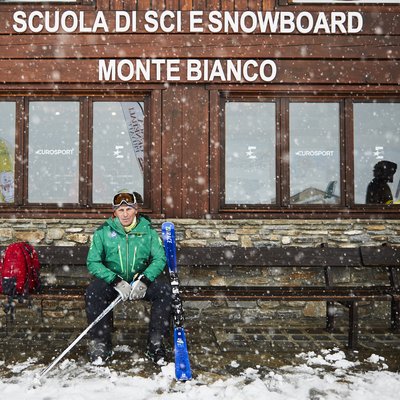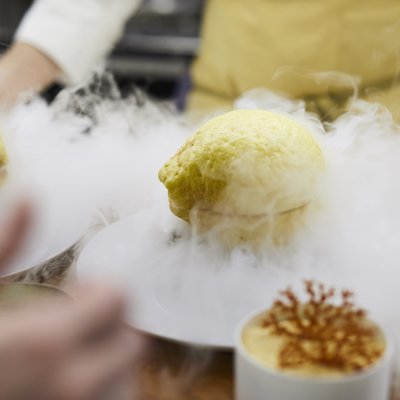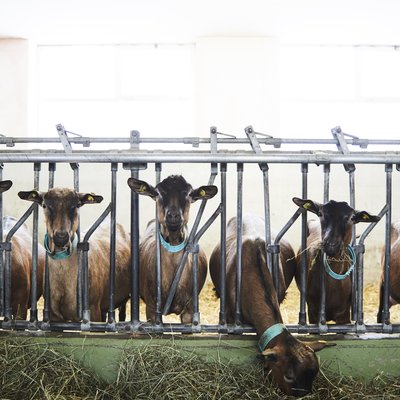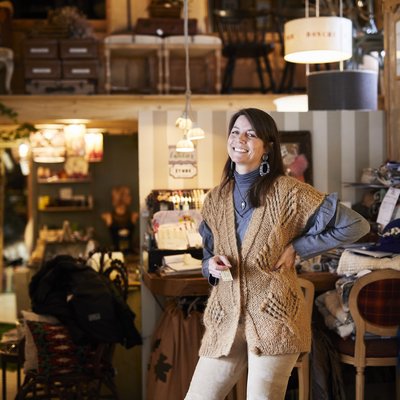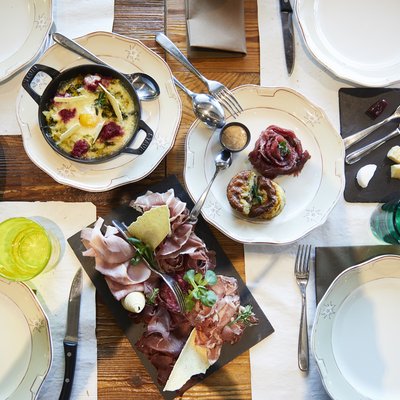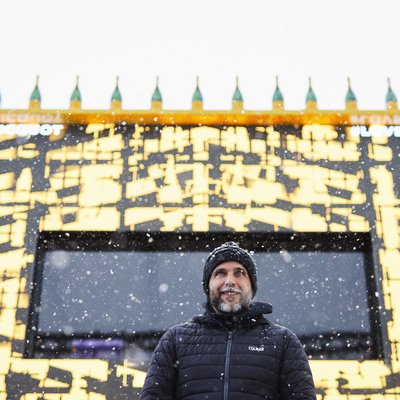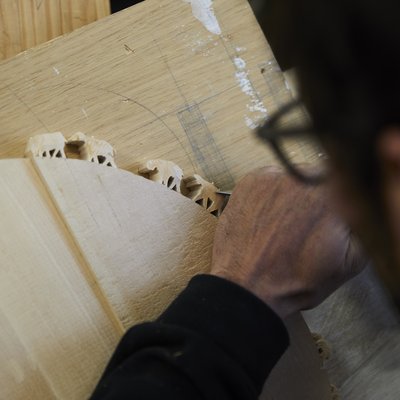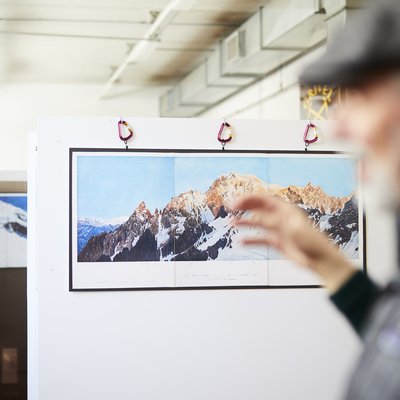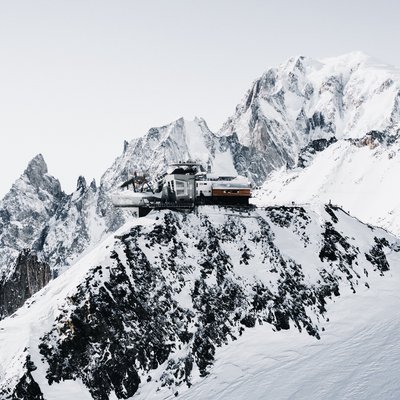Too Fast For A Quiet Life
Marcella Biondi is not one to waste time. The former ski racer gets to the point quickly when it comes to her professional job as hotel manager of the Chalet Val Ferre – or her private ambitions on the slopes. A conversation about impatience, pressure to succeed and unexpected turns.
Marcella Biondi is quick and smart. She thinks fast, speaks fast and acts fast. Speed is not only a tool, but the leitmotif in the life of the 51-year-old Italian. Once the great hope of Italian ski racing in the 1990s, the former overall winner of the FIS Alpine Europa Cup did not win a single race in the World Cup. So she retired from professional skiing at the age of only 26, first to study in the United States and later to take over her mother's hotel in Courmayeur. We meet her on a sunny day in late autumn in Val Ferret, her favourite place in the entire Aosta Valley.
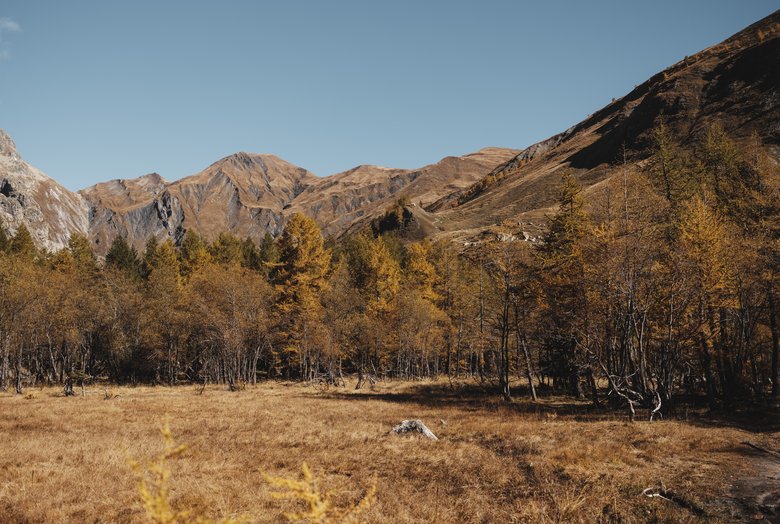
Dear Marcella, even though it is unusually warm today, winter is already knocking hard on the door. How great is the anticipation?
I have just finished the summer season and closed the hotel. Now I have a few weeks to take a deep breath before winter starts. But I can hardly wait to finally strap on my skis again.
When was your first time on skis?
My mother worked as a ski instructor, so as far back as I can remember, I skied. When you grow up here in Courmayeur, you have no choice. Everywhere you look, you see snow-covered peaks. What else was I supposed to do?
Maybe mountaineering or climbing?
No sport has ever fascinated me as much as skiing. With climbing or mountaineering, everything happens rather slowly. I like things to happen fast.
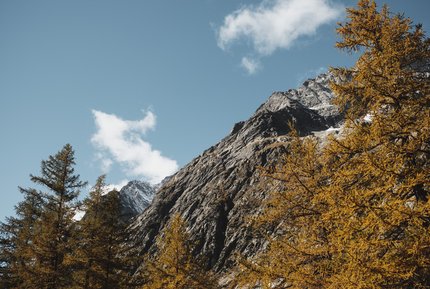
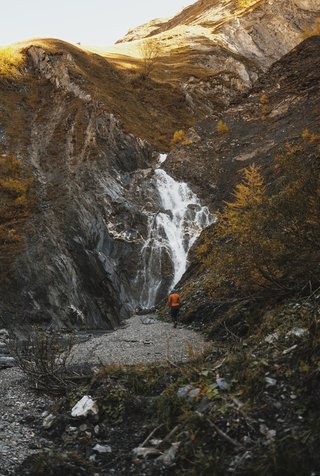
Also off-piste?
Definitely! I try to make decisions within a few breaths. Even though some people say that you become more relaxed with age, I don't feel any of that yet. I find it very difficult to take things slowly.
Was your impatience the reason why it didn't quite work out with the big successes in alpine skiing?
I don't think it was primarily my impatience that threw a spanner in the works in the World Cup. It was more my nerves that held me back. In the Europa Cup, everything went brilliantly: I had numerous victories, was the overall winner in Saalbach-Hinterglemm in 1992, and a few days later I was allowed to start in the World Cup. From when I was little, that had been my greatest dream. But when I was up there in the starting gate and the moment had finally arrived, I felt weak and inhibited.
Although your talent was undisputed, after all, you, alongside Olympic champion Deborah Compagnoni, were one of the great hopes of the team. Was the pressure too much?
Maybe, I still can't say, but something held me back. Although I trained more than anyone else, worked with countless mental coaches, it just wouldn't happen. I had top times in training, but as soon as the start signal sounded, I couldn't deliver. After four unsuccessful years in the World Cup, I was offered a university scholarship in the U.S. and I accepted immediately.
So you had to make a quick change?
It was an offer I couldn't refuse. I had no World Cup wins to my name and was terribly frustrated. The opportunity to study at the University of Lake Tahoe was like a ray of hope at the end of the tunnel. I didn't hesitate for a second. I quit my racing career and a few days later I was already on the plane. Looking back, it was one of the best decisions and most formative experiences of my entire life.
They say that when one door closes, another one opens.
Yes, and then you just have to have the courage to walk through it and embrace the unknown. I was a young girl from a small village in the Alps. There was nothing to lose for me. My expectations were pretty low, I just wanted to get away from it all and start again.
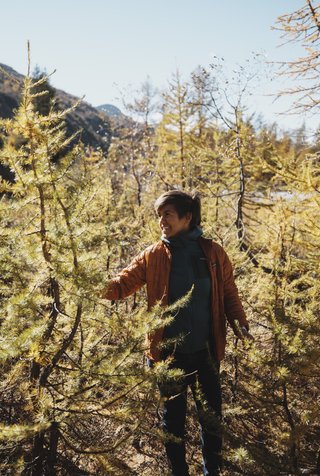
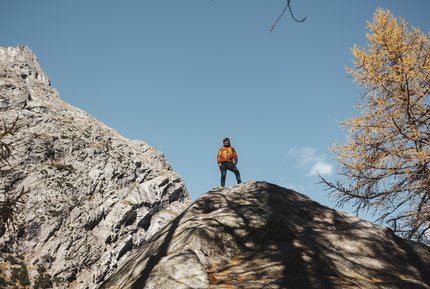
Did you then give up skiing during your studies?
No, quite the opposite. I took part in countless ski races in North America and Canada on behalf of the college. I was part of the college team, it was our job to promote the university. We travelled the entire continent, it was a wonderful and incredibly formative four years that changed my life completely. Winning was suddenly no longer important.
And after graduation, did you consider staying in America?
Oh yes, very much so! But I am very much European, and as such I feel very connected to my roots and my family. My mother ran the hotel and restaurant in Val Ferret and I knew that if I didn’t step up, she would have to sell it. It was certainly not an easy decision, but one that I have never regretted.
The hotel is really very picturesque, here, at the end of the valley. You mentioned at the beginning that you have just finished the summer season. Are the hotel and restaurant also open in winter?
The Val Ferret is a sparsely populated and very unspoilt valley, the road ends here. Behind my hotel, the Tour du Mont-Blanc long-distance hiking trail leads over the Col Ferret pass at 2,5000m down into the Swiss Valais - the only connection in this direction. The entire valley is closed during the winter to protect this unique natural area. That's why the hotel and restaurant are open only in the summer months.
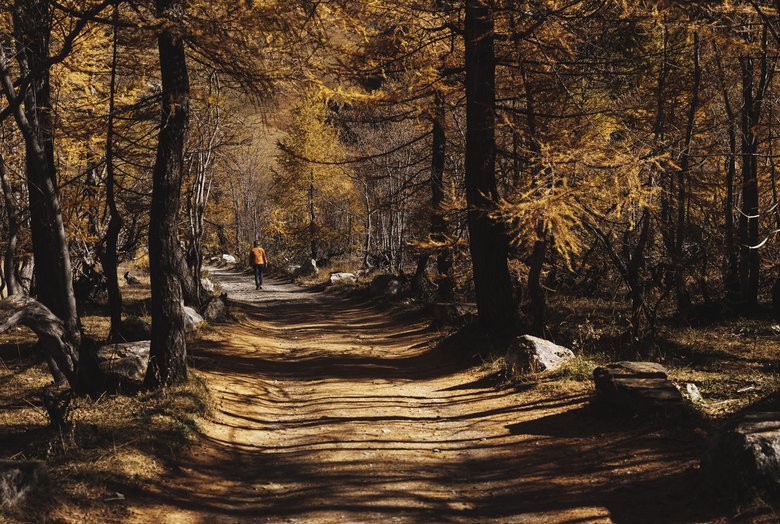
And what do you do the rest of the year?
In winter I work as a coach for the Courmayeur ski club.
No surprise there!
I have a lot of fun training the kids and otherwise I would only work from June to September. Even as an Italian that would make me feel bad (laughs).
And what advice do you have for the kids? How do you make it to the top?
By loving what you do and being prepared to give everything to it.
Many athletes do that, but not everyone becomes a world champion...
You need a bit of luck, without it you probably won't make it.
Are you happy with the life you lead?
Very much so. I wouldn't want to change any of it.
Text: Robert Maruna // friendship.is
Photos: Ian Ehm // friendship.is
April 20, 2022

